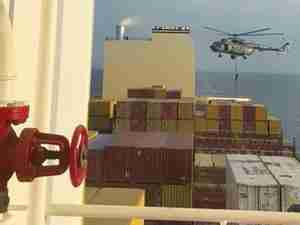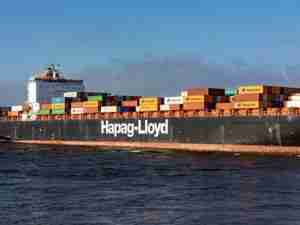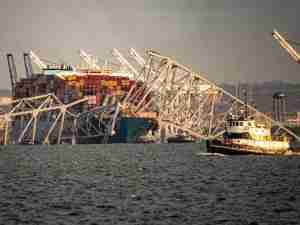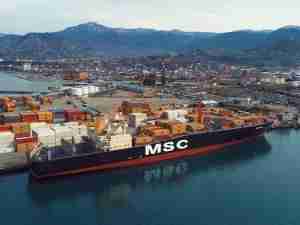The CEOs of container shipping lines of the Trans-Pacific Stabilization Agreement (TSA) have reinforced their intentions to ensure that 2009-10 service contracts do not result in the kind of non-compensatory, unsustainable rate levels that began to develop principally in the 'spot' rate market during the off-peak this winter. In addition to moving to expire these short term rates, Lines have also indicated their intention to ensure that the progress made in 2008/09 contracting which produced an improved level of fuel cost recovery continues.
At their most recent meeting in Tokyo, the 14 TSA carrier CEOs expressed their intention to avoid any further erosion of the current rate structures by expiring, no later than June 30, 2009, any short term rates that have been reduced over the past 4-5 months.
TSA Chairman Ronald D. Widdows stated: 'In spite of TSA members earlier announced intention to expire these unsustainable rates, carrier behavior not only failed to arrest the volatility in the trade, but contributed to further erosion in a number of cargo segments, most significantly in the spot market. There have also been isolated incidents where these non-compensatory rate levels have found their way into a small number of new contracts. Everyone involved in this trade faces the certainty of significant losses if quick action is not taken to approach the upcoming round of contract negotiations with a renewed focus on rates that will support continued servicing of this market. It will be evident shortly whether member lines individually can rise to the challenge'
The first step in the process of stabilizing the trade will be the action by lines on an individual and non-binding basis to expire reduced short term/spot rates by the end of June at the latest. Step two of the process will be lines seeking to establish rates going forward in 2009-10 contracting at levels $500 to $600 per 40-foot container (FEU) above the low levels that some rates deteriorated to over the last few months.
In addition to achieving more sustainable core rates, member line CEO's voiced their conviction that they must continue to seek further improvements to the number of contracts that contain full floating bunker and inland fuel recovery provisions.
In announcing their plans, the TSA lines acknowledged the difficulties facing shippers and carriers alike in the Asia-US trade, as the continued global economic downturn has affected consumer demand in the US and curtailed manufacturing output and exports from Asia.
'All carriers involved in the trans-Pacific trade are adjusting as best they can to this new cargo demand level, which will probably be with us for some time to come,' said TSA Executive Administrator Brian Conrad. 'This is a time for all parties to come to the table with an eye toward sharing the burden of this extra-ordinary market environment. Carriers will see rates soften from their 2008-09 levels ' however, shippers will need to understand that in order to continue to be able to service this market, the rates will have to settle at sustainable levels.'
Conrad added: 'The carriers have reached a point where financial survival, not utilization or market share, has to become the driving force. Moving to establish rates at least $500 to $600 above the levels to which the spot market has eroded, is a desperately needed first step in the industry's efforts to move away from a potential catastrophic event. Lines are starting to hear concerns expressed by their customers about the impact on service if these rate levels remain in the market for the long term.'









